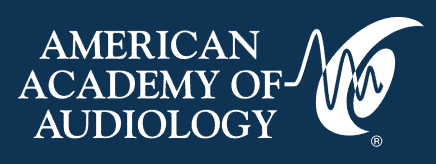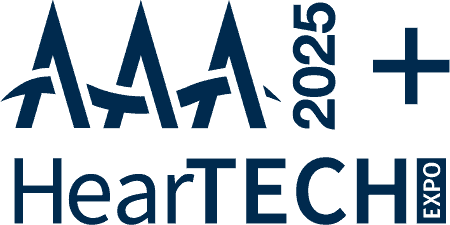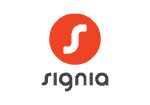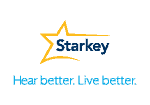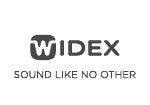The HearTECH Hub will showcase education, presentations, and learning opportunities starting Wednesday afternoon through Friday. It will also feature product displays and offer a social area to converse with colleagues and meet with the members and representatives of our Hub sponsors.
Earn up to 1.65 CEUs in the HearTECH Expo Hall.
Thank You to Our HearTECH Hub Sponsors
HearTECH Hub Education
Wednesday, April 17
Presented by Dave Gordey, PhD, Oticon A/S; Gail Whitelaw, PhD, Ohio State University
CEUs: 0.05
Wednesday, April 17, 4:30–5:00 pm
Developed guidelines have emphasized the importance of investigating the functional auditory abilities of individuals referred for hearing assessments. Those with normal pure-tone audiograms may have listening, and communication difficulties associated with deficits in managing auditory information (e.g., APD). Survey and interview research explored North American audiologists’ assessment and management practices of patients with normal peripheral audiograms who report functional hearing deficits. In addition, the use of low gain hearing aids and remote microphone systems as a treatment for APD was examined.
Thursday, April 18
Presented by Kadyn Williams, AuD; Chair, Payment Policy Advisory Committee; Denise Garris, The Korris Groups; Consultant, Payment Policy Advisory Committee; Erin Miller, AuD, NOAC Coordinator, University of Akron; Member, Payment Policy Advisory Committee; Paul Pessis, AuD, North Shore Audio-Vestibular Lab, IL; Audiology HCPAC-RUC Advisor & Member, Payment Policy Advisory Committee; Annette Burton, AuD, Easterseals Center for Better Hearing, CT; Alternate Audiology HCPAC-CPT Advisor; Member, Payment Policy Advisory Committee
CEUs: 0.1
Thursday, April 18, 12:30–1:30 pm
Whether in private practice or part of a large health system, procedural codes matter to bill effectively and be reimbursed for the services you perform. Developing codes and their values is complex work. The Academy team has the experience and expertise to represent the audiologist’s interests in the CPT and RUC processes. However, audiologists also play a pivotal role in the success of these processes. Meet with the Academy practice policy team to learn the steps involved and how to become an active contributor. Participation in the valuation process is foundational to attaining optimal outcomes for our profession.
Presented by Dave Fabry, PhD, Starkey
CEUs: 0.05
Thursday, April 18, 1:45–2:15 pm
Technology in the hearing industry continues to advance at an accelerated rate. Today’s hearing aids are being transformed by sophisticated and groundbreaking technology such as sensors and artificial intelligence. Rapidly evolving AI, one of the most important innovations shaping our future, has shifted hearing aids from single function listening enhancement devices into multi-functional and multipurpose health and communication tools. This presentation will discuss current research and AI applications for signal processing and speech intelligibility, health and wellness as well as personal digital assistant technologies. Join an engaging discussion of the implications of this technology for both patients and hearing professionals.
Presented by Dana Helmink, AuD, Senior Director, Audiological Development, Widex
CEUs: 0.05
Thursday, April 18, 2:30–3:00 pm
In hearing aid design, a fundamental goal is to help wearers remain active and social. To achieve that goal effectively, measurable speech in noise benefits are required. Join us as we examine unique strategies available in the pursuit of better communication in noisy listening situations and answer the age-old question: can we be doing more? New strategies and evidence to support those recommendations will be discussed.
Presented by Laurel A. Christensen, PhD, Chief Audiology Officer, GN Hearing
CEUs: 0.05
Thursday, April 18, 3:15-3:45 pm
In 2020, the Bluetooth Special Interest Group, Bluetooth SIG, introduced a new Bluetooth standard, Bluetooth Low Energy Audio (BTLEA). This standard will over time, replace the Bluetooth Classic standard. There are several benefits of the new standard over the existing standard including (1) Better sound quality, (2) The ability to connect to multiple devices simultaneously, and (3) Auracast. Auracast will offer broadcasting in public spaces to everyone with devices equipped with BTLEA. This session will detail the new standard and the benefits to hearing aid users.
Presented by Brian Taylor, AuD, Senior Director of Audiology, Signia
CEUs: 0.05
Thursday, April 18, 4:00-4:30 pm
Audiology is expected to evolve quite dramatically over the next 10 years. Driven by remarkable advances in artificial intelligence (AI), the rise of third-party administrated (insurance) contracts and the growth of direct-to-consumer devices (DTC), the value that audiology creates for persons with hearing difficulties will likely be much different in 2034 compared to 2024.
Following a detailed overview of AI, TPAs and DTCs, the panel will provide data-driven insights on how audiologists can embrace these evolutionary changes to differentiate their clinical offerings, growth their business, better serve untapped segments of their local market -- all while providing unparalleled patient value.
Moderator: Patricia Gaffney, AuD, Academy President-Elect
Panelists: Jeff Geigel, Chief Sales Officer, Starkey; Mikkel Knudson, President, U.S. Commercial Business, ReSound; Jason Mayer, Vice President, Phonak; Søren Nielsen, President, Widex USA; Mike O’Neil, President, Signia; Gary Rosenblum, President, Oticon, Inc.; Patti Trautwein, Vice President, Market Access and Reimbursement, Cochlear
CEUs: 0.1
Thursday, April 18, 5:00-6:00 pm
In the United States, approximately 49 million adults have under or untreated hearing loss with this level expected to grow by 30 million over the next four decades. Key stakeholders committed to reducing the rate of untreated hearing loss include manufacturers, audiologists, physicians and policymakers but the role of audiologists is not always recognized as clinicians that can play an instrumental role in not only treating hearing loss, but also improving overall health outcomes. Audiologists offer comprehensive diagnostic and audiological services including evaluations, diagnostic testing and treatment of hearing and balance disorders. However, there are a variety of threats to the future of the audiology profession, such as lack of recognition by Medicare, physician views of hearing health, variation in audiology practice, narrow insurance provider networks, and lack of public awareness of audiological services. Audiologists must be ready to stand together, to clearly differentiate themselves, protect their future, raise their profile among lawmakers and other health-care professionals, and ensure more adults are seeking out audiologists and their services moving forward.
During the Future Forecast session, leaders from the hearing amplification industry will offer their perspectives on how to promote the critical role the profession plays in a patient’s health care journey and how manufacturers and audiologists can reduce untreated hearing loss. They will discuss the vital and interdependent relationship between manufacturers and audiologists and the opportunity to work together to advance a common goal of demonstrating the benefits of audiological services, including how to raise awareness among primary care providers and overcome obstacles in referring patients. The panel will also describe how audiologists can differentiate themselves through technological innovations combined with the services they offer ultimately leading to improved hearing health care for millions and treatment of other comorbidities, and how best to ensure policy makers fully understand what policies are needed to reduce untreated hearing loss.
Friday, April 19
Presented by Jason Galster, Ph.D., Vice President of Clinical Research Strategy, Sonova
CEUs: 0.05
Friday, April 19, 9:05-9:35 am
Methods related to machine learning have contributed to the development of hearing aids for at least a decade. These methods improved patient outcomes in a variety of ways that include but are not limited to advancing acoustic scene classification, steering of signal processing, and gain prescriptions. During this session, we will review the state of the art in speech enhancement and acoustic denoising with a specific focus on research applications that show promise for use in hearing aids. This overview will help us understand what promise exists on the near-term horizon for the treatment of hearing loss.
Presented by Joel Lockwood, President, Sycle
Friday, April 19, 10:25–10:40 am
What do your peers in hearing care really think? In a recent survey of thousands of clinics, Sycle, the leader in practice management software for hearing clinics, asked the industry to “get real” about challenges and plans. From missed opportunities to the impact of ground-breaking technology like AI, you’ll discover important issues to plan for and new ideas to help your practice grow.
Presented by Bond Zhao, CEO, Linner; Rod Wang, Product Director, Linner; Tina Ji, Sales Director, Linner; Dex Chen, GTM, Linner
Friday, April 19, 10:50–11:05 am
During this presentation, discover LINNER's OTC hearing aids, tailored for mild to moderate hearing loss. Immerse yourself in sleek design, driven by advanced AudioPrecisionTM algorithms. Experience LINNER Product Ecosystem. Hardware + Software + Service Integration, a one-stop of hearing fitting, one-on-one solution, professional consultation and customer service. Distribution Cooperation - Market Research Share & Distribution Preferred Proposal: Partnership backed by market research and a preferred proposal.
Presented by Jeanette Fitzke, AuD, Western US and Canada Regional Field Clinical Audiologist, Natus Medical
Friday, April 19, 11:15–11:30 am
Learn how 3D scanned images are used as a tool to provide clinical advantages for the clinician and patient by improving outcomes, communicating value and practice differentiation. Experience the process of 3D scanning and understand the basic steps. Further, see business case examples that show the cost savings and improved return on investment that is achieved with 3D ear scanning versus silicone impression process.
Presented by Tracy Murphy, AuD, North Shore Audio-Vestibular Lab; Chair, Advocacy Council; Adam Mehlenbacher, AuD, Durham VA Health Care System, NC; Member, Payment Policy Advisory Committee; Tina Stern, AuD, University of Miami, FL; Member, Federal and State Relations Committee; Lee Cottrell, AuD, Balance and Hearing Institute at Farragut ENT & Allergy, Knoxville, TN; Chair, Federal and State Relations Committee; Susan Pilch, JD, Senior Director of Government Relations, American Academy of Audiology
CEUs: 0.1
Friday, April 19, 12:15–1:15 pm
To protect our profession, audiologists must be vigilant at the state level about efforts to limit audiology or for scope creep by other professions. The services that define audiology practice are based on having the requisite education and skills to perform; however, there are increasing attempts by other less educated individuals to add some of these services, such as tinnitus management and cerumen management, to their scope of practice. As well, organized medicine continues its campaign to restrict audiologists. This session will present what occurred in several select states and the actions taken by audiologists. Participants will discuss how these threats are often co-mingled with larger legislative efforts and can go unnoticed without careful monitoring.
Presented by Jodi Baxter, AuD, The Ohio State University; Past Chair, AAA Advocacy Council; Vivianne Wersel, AuD, Private Practice, NC; Member, Federal & State Relations Committee; Tracy Murphy, AuD, North Shore Audio-Vestibular Lab, IL; Chair, Advocacy Council
CEUs: 0.05
Friday, April 19, 1:30–2:30 pm
Building on the first part of this session looking at individual-level advocacy, seasoned advocates within the Academy’s Advocacy Council will continue to help participants pick up tips and strategies for being effective in their grassroots efforts. Lively role-playing opportunities and other communication exercises will offer conference attendees a fun, casual environment for building and strengthening advocacy skills. Participants will also learn how to reach out to state and federal legislators, as well as different regulatory bodies, to share information and request meetings in which to articulate key messages on behalf of the audiology profession. After attending both sessions, participants should have the tools to assume the essential role of audiology advocate.
